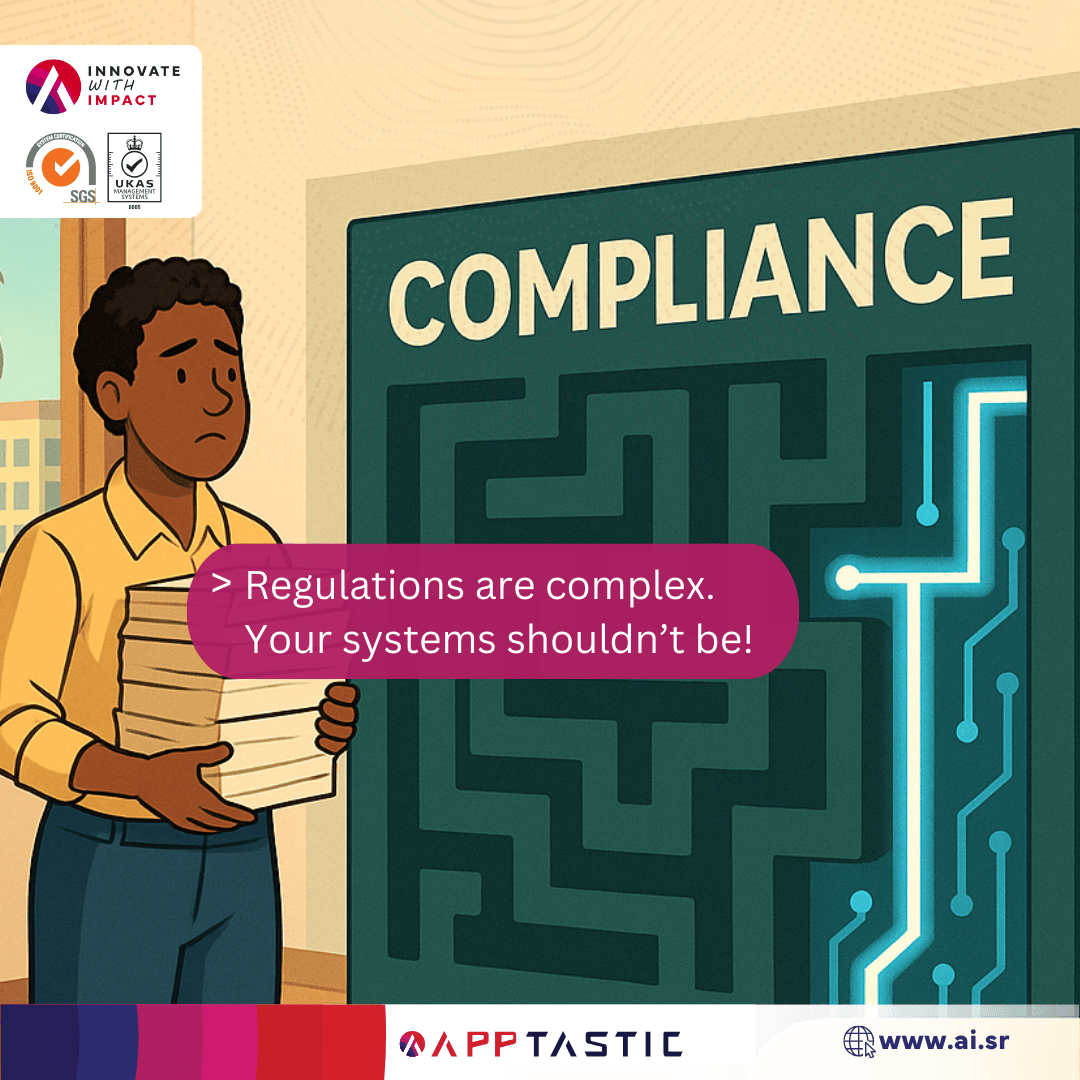On Thursday, October 27, 2023, the Vereniging Surinaams Bedrijfsleven (VSB), held a crucial meeting with Mr. Zephrine Millard, the Product Development Officer at the Compete Caribbean Partnership Facility (CCPF). The discussion focused on the state of the Information and Communication Technology (ICT) sector in Suriname and the opportunities for growth and development. This is part of a new project of the CCPF concerning ICT gabs in Suriname.
The Compete Caribbean Partnership Facility (CCPF), established as a private sector development program linked to the Inter-American Development Bank (IDB), has been operating since 2011 with the primary goal of fostering economic growth, enhancing productivity, and nurturing innovation and competitiveness within the Caribbean region. CCPF collaborates closely with governments, businesses, and various stakeholders to design and implement innovative solutions tailored to address the unique challenges and opportunities facing the Caribbean private sector.
The CCPF is structured into two key pillars:
- Pillar 1: Support for Caribbean firms to grow, innovate, and enter new sectors and markets: This pillar provides financial and technical assistance to Caribbean businesses, aiming to facilitate their growth, enhance productivity, and encourage the development of new products and services. Furthermore, it supports companies in expanding their presence in both domestic and international markets.
- Pillar 2: Promotion of an environment that enables innovation and growth: This pillar is dedicated to developing an environment conducive to private sector development in the Caribbean. It involves collaboration with governments to enhance the regulatory landscape, promote access to finance, and foster the development of a skilled workforce.
During the meeting, Mr. Millard sought to gain insight into the VSB’s perspective on ICT sector developments in Suriname and the areas requiring the most attention. The VSB’s representatives responded with a comprehensive list of top priorities for further ICT sector development, spanning various industries and segments of society.
Education Sector was identified as the first priority, with a focus on developing digital literacy and technological skills. Recommendations included the integration of digital literacy into formal education, the implementation of training programs for upskilling and reskilling the existing workforce, and the facilitation of online learning platforms covering a broad range of ICT-related subjects.
Financial Services were recognized as an area where fintech applications, mobile banking, online payment systems, blockchain technology, and artificial intelligence (AI) could streamline financial processes and increase access to financial services.
In Agriculture and Agrotechnology, the application of precision agriculture, drones, Internet of Things (IoT) sensors, and data analysis was emphasized for optimizing agricultural practices, crop management, and harvest predictions.
The Healthcare sector was discussed in the context of ICT’s potential to improve patient care, medical diagnoses, and treatment plans. The implementation of electronic medical records, telemedicine, medical imaging, and health apps was suggested as valuable initiatives.
Government and E-Government were acknowledged as areas where digitization of government services, electronic voting systems, public data platforms, and smart city initiatives could enhance the efficiency of government processes.
E-commerce and Retail were mentioned with respect to the transformation potential of e-commerce platforms, digital marketing, AI for customer behavior analysis, and logistic optimization in the retail sector.
The Regulation and Legislation (Governance, Compliance & Control) category was identified as crucial, given the need for comprehensive national policies. Recommendations included implementing legislation related to data protection and privacy, cybersecurity, intellectual property, e-commerce, net neutrality, telecommunications, digital accessibility, electronic signatures and records, cybercrime, and social media and content moderation.
Commercialization of ICT services and links to existing strategic plans, including the ICT Vision 2030 Suriname and Suriname e-Gov Digital Strategy, were also highlighted as essential components of Suriname’s ICT development roadmap.
The dialogue between the VSB and the CCPF represents a significant step in addressing the ICT sector’s challenges and opportunities in Suriname, setting the stage for collaborative efforts to drive economic growth and technological advancement in the region. The insights provided by the VSB will likely inform future initiatives and investments in Suriname’s ICT sector.


